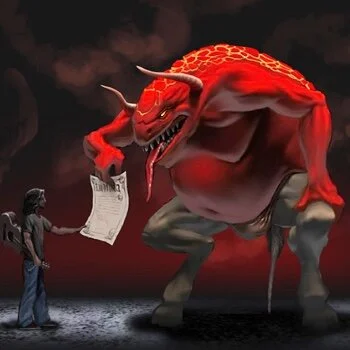Why I oppose the Final Draft.
By Baba Colley
When did Mr Cherno Sulayman Jallow and the Constitution Review Commission decide that they were going to copy the Kenyan constitution? Nothing against the practice of borrowing good ideas from others. I think we need more of it, and yes there is little to gain from trying to reinvent the wheel. However, I think it is fair for Gambians to ask questions. Considering that it cost a significant amount of money and two years to complete the task. It is fair when people complain about their copy and paste job. Mr Jallow’s response to the charges of plagiarism raised more questions than answers. If one of the standard they applied was to copy ideas that have worked for others, then why did they chose to copy from Kenya? Their constitution is barely a decade old, and that is hardly enough time to say that it has passed the test of time. There are constitutions in the world that are much older have been put through all kinds of scrutiny. I think chairman Jallow himself will agree that the Kenyan constitution is not one of them. Secondly, Kenya is hardly the first country that we think of when we are looking for cultural similarities. A set of rules that work for that society may not be suitable for us. And yes I hear those who say that democratic values are universal, but if that is true, then why is gay marriage legal in South Africa and Australia, but illegal in Malaysia and Senegal? They are all democracies, and this analogy is for the purpose of pointing out that democratic values may be universal, but cultural norms can never be ignored. The Gambia and Kenya are not that similar in our cultural orientations. Mr Jallow also took his critics to task by asking for their own contributions to the process. This was very disappointing, especially coming from him. Mr Jallow and his team were paid to do one job, and if the people are unsatisfied with any aspect of what they delivered, a little humility will go farther than the arrogantly defiant tone that he opted for. We could have picked 2 freshmen from The University of The Gambia to copy and paste Kenya’s constitution and change a few words here and there, so asking his critics to show their personal inputs was out of line. And as a lawyer, he should know that a document does not have to be copyrighted for plagiarism to take place. Whenever you present other people's work as your own, you are guilty of plagiarism but that’s not why I am here. I am here to share why I think that this draft constitution is inadequate and it should be voted down by the people. Here are some of my reasons:
1. A constitution is supposed to be a contract between the people and their government. It is the people telling their government what to do, and what not to do. What we have in this draft, is the government telling the people how things are going be. I am going to start with the area dealing with decentralization of Government. I believe that the individual is the most important unit in a democracy. Not the family, not the village, not the district, not the region and definitely not the central government. All the laws do not mean anything, if the individual citizen is not treated like the most important unit. All the laws are made to make sure that the individual citizen is safe and free. No society will be peaceful and prosperous, if the rights and privileges of the individual are not protected. In our villages, outside of the parents the Alkali is the first individual in the position of authority that the people know and deal with on a daily basis. To see that this new draft is denying the individual villagers the right to chose their own Alkali was disappointing. To have a handpicked minister chose your Alkali is not the fake decentralization that we need in 2020 and beyond. The non partisan election of the Chiefs was also another missed opportunity. Instead of going through all those twisted maneuvers, why can’t the elected Alikalu chose a new chief whenever the one in office passes away or becomes incapacitated? The people should decide if they want these appointments to be lifetime or not. Their argument that this chosen format prevents divisive partisan politics fall flat on its face, because they are conveniently ignoring the obvious fact that the minister is picked by a politician. Accountability is an important element in any system, and if your leaders do not derive their powers from you, then they have no motivation to do what you want.
2. The supporters of this draft seems to be very happy with the trimmed down powers of the President. Considering that every citizen gets to have a say in who becomes president, it is important that he or she is able to act on behalf of the people. To subject most of the president’s functions to the approval of the parliament will only benefit presidents whose party also has a majority in the house. There is nothing wrong with checks and balances, but when most of the powers of one branch are subject to the approval of the other, then we cannot honestly call that a balanced system. If we wanted a parliamentary democracy, we will ask for it. To add insult to injury, this draft also made it possible for a few members of parliament to temporarily remove the president from office when they believe that he is incapable of carrying out his functions. This is a joke and it is no way to treat the votes of the citizens. In the appointment of judges and other officers, the president should not have to consult with a handpicked group of unelected people first. I suppose it's fine if they advise on appointments, but our elected president should not be compelled to consult with a commission first in doing his job. This is nothing but an attempt by the unelected elite trying to grab power away from the people. It is also unfortunate that they added an education requirement on candidates for president. This is another area that I think that they have no business going. If a PHD holder loses a presidential bit to an illiterate, then that means the people don't want the PHD holder. Considering that a significant segment of the electorate does not have a high school diploma, maybe everyone that is barred from running for president should vote against it. I think it is insulting and unnecessary. If the Gambian people decide that they want to elect their own Lula da Silva, then they should be free do so.
3. I have to admit that I was happy to see a long list of fundamental rights in this draft document. I have always been a fan of the United States Bill of Rights. After reading the Kenyan constitution, I realized that those rights were copied directly from there. The one interesting difference was that The Kenyan version and the US Bill of Rights do not have a section called “Limitation of Fundamental Rights.” It looks like our drafters took it upon themselves to remind us that the government will be the hand and we are the glove. On one hand it says, here are your rights, and on the other one it says, here is when they disappear. Of course it sounds good to say that there are limits to how far we can go in exercising our freedoms, but we should be able to negotiate those limits amongst ourselves without the government telling us where the line is drawn.
4. The rights of the media was also a welcome section in this draft, and that part was also copied directly from the Kenyan constitution. However there was an interesting omission in the Gambian version. In the Kenyan version it says that, "The state shall not (a). exercise control over or interfere with any person engaged in broadcasting, the production or circulation of any publication or the dissemination of information by any medium; or � (b) Penalise any person for any opinion or view or the content of any broadcast, publication or dissemination." In the final draft presented by CRC, the first part was removed. Maybe one of these days, the members of the media will ask why.� 5. The drafters also managed to throw in a quota system. What happened to fair competition? A government should only work to guarantee equal opportunities for all citizens, but the idea that it should guarantee equal outcome is ridiculous. There are no discriminatory laws preventing women and younger people from running for office, and I don’t believe there has ever been. Nothing stops people of sexes, age and ability from forming their own political party, and since these political parties are private and independent entities, the government should not force them to pick any candidate in order to fulfill an arbitrary quota system. Forcing a candidate down people’s throat makes us all feel good, but it’s not democratic.
6. The most independent branch of the three branches of government is the Judiciary. I wonder how that happened. Could it be because most of the drafters are members of the legal profession, and they are all eyeing a lifetime appointment in the future? Maybe all the members of the CRC should be barred from appointment to any of these positions that they created. Don’t lawyers call that conflict of Interest? They should not be allowed to split up our millions to copy another country’s constitution, and then carve out lifetime jobs for themselves. Since Barrow has to accept that his first term gets to count, these distinguished lawyers should all make themselves unavailable for judgeship appointments and seats on the Judicial Commission.
The bottom line is, there are good clauses in the constitution, but there are enough terrible clauses in it to make this draft a no for me. I am very aware of the underlying tension in the air. Opponents of the current president do not want to see anything happen that could potentially keep him in office beyond 2021. For those people, this constitution has enough good provisions for us to accept it, and worry about amending it later. If they are worried about the 1997 constitution barring their candidates due to the age limit, then maybe they should make a case for amending that document until a better draft comes along. The supporters of the current incompetent president are possibly unhappy because his best case scenario in this constitution is just one more term. Since many of them pushed for his current term to not count, they will also have a chance to show their dissatisfaction. The way things are shaping up, the loser in this struggle is once again going to be the common man who got completely sidelined. With the minimum education requirements, the common man gets to sit by and watch the winners fatten themselves up. You are reduced to a mere voter, but if you live in a village, that vote does not do you any good, because a minister is picking your Alkali for you. The text of the document says otherwise, but if his approval makes his selection legitimate, then what happens if he disapproves? So there you have it folks, the battle lines are already drawn, and everyone is going to tell us that we should ratify this imperfect constitution now, and worry about amending the parts that we don’t like later. After all no one likes to let perfect get in the way of good. The real truth is, there is a party and the ordinary citizen is not invited. Since we paid millions for a copy of the Kenyan constitution, maybe we should copy them one more time. In 2005 the Kenyans were presented an inadequate draft constitution and they voted it down and demanded a better one.



